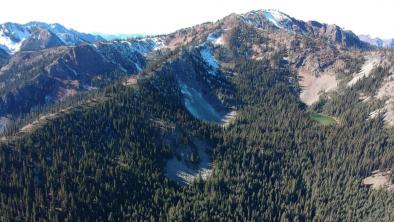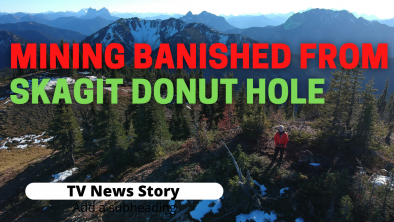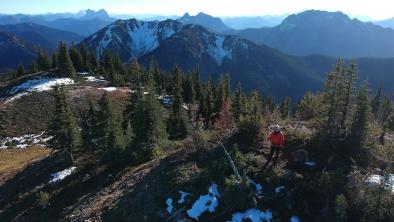Mining work backlash grows
Castanet

Opposition to proposed mineral exploratory work in the Manning Park “donut hole” continues to grow while the provincial government considers the application from Imperial Metals to probe the area for copper and gold.
Thirty B.C. organizations, including the Guide Outfitters Association of B.C., B.C. Fishing Resorts and Outfitters Association, Backcountry B.C. among others have penned a new letter to the province, urging the government to reject the plans.
“The opposition to the proposed mine permit in the Skagit Headwaters continues to grow as we await a decision by the BC Government. This latest push is highlighted by British Columbia organizations, outdoor industry leaders and local businesses that would be impacted economically by new mining in this incredible area,” said Tom Uniack, Executive Director for Washington Wild.
The 5,800-hectare “donut hole” between Skagit Valley and Manning Provincial Parks was left unprotected when Skagit Valley became a provincial park in 1996, due to mineral claims dating back to the 30s.
The area is within the headwaters of the Skagit River and is protected somewhat by the 1984 Canada-U.S. High Ross Treaty. The treaty ended decades of negotiations sparked by the Seattle electricity utility’s plan to raise the water level behind Ross Dam, which would have flooded 5,000 acres of B.C. farmland and recreation space in the process.
Under the treaty, Seattle agreed to not raise the dam for 80 years in exchange for purchasing power from B.C. at a discount. The treaty also formed the creation of a commission, which is co-chaired by an American and a Canadian, in an effort to protect wildlife habitat and integrity of the watershed.
The B.C. Union of Indian Chiefs has also come out opposed to the work.
“The proposed mining in the Skagit headwaters poses a significant and devastating threat to our inherent Indigenous Title and Rights and the fish, wildlife and natural and cultural resources on which our existence is based,’ said Grand Chief Stewart Phillip.
“We call on the British Columbia government to honour their obligation to our people and preserve benefits for all of us who call British Columbia home, and exercise their authority to deny this permit.”
The company behind the proposed work, Imperial Metals, was responsible for the 2014 Mount Polley disaster, further stoking fears held by environmental groups.
“The B.C. government let Imperial Metals off the hook," said Kai Nagata, communications director at Dogwood. "To add insult to injury, taxpayers spent $40M on cleanup and it still looks like a moonscape. We can't let them do it all over again in the Skagit headwaters."
This isn’t the first time resource extraction in the donut hole has sparked controversy.
Last year, the mayor of Seattle wrote to Premier John Horgan requesting BC Timber Sales halt logging plans in the area, saying they were “inconsistent with the spirit” of the High Ross Treaty.
Since then, the B.C. government has said all future logging plans in the area are on hold.
Public consultation on the mining work closed in May. There is no indication as to when the province will announce its decision.


